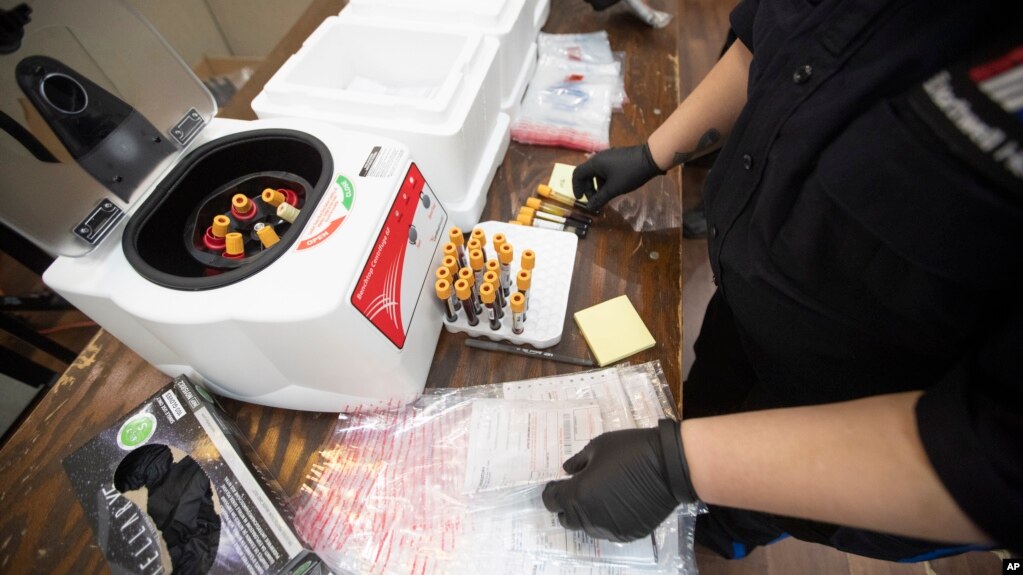
FILE - A health worker matches the number on a tube to the number of samples during a COVID-19 antibody test drive May 14, 2020, in New York. (AP Photo/Mary Altaffer)
Researchers say antibodies, made by the human body to fight the new coronavirus, could last for at least four months. Earlier reports suggested that these special proteins disappeared quickly.
Galit Alter and Dr. Robert Seder are scientists from Harvard University and the U.S. National Institutes of Health. They wrote in the New England Journal of Medicine: “This study provides hope that host immunity to this unpredictable and highly contagious virus may not be fleeting.”
The report, released this week, came from tests on more than 30,000 people in Iceland over four months. It is the most complete study yet on one of the body’s natural defenses against the new coronavirus.
Researchers used two different tests for the study. They used nose swabs or similar materials to find out if people were infected. They also measured antibodies in people’s blood, which can show whether a person is currently infected or was in the past. Blood samples were taken from many different people. The samples came from those who showed no effects of infection to those who were hospitalized with signs of COVID-19.
In a smaller group of people who had the virus, additional testing found that antibodies rose for two months after the infection was first diagnosed and stayed at the same level for four months.
The scientists said earlier studies may have only observed the first wave of antibodies 28 days after diagnosis. These studies suggested that the antibodies disappeared quickly. The second wave of antibodies that form after one or two months seem to last longer, the researchers reported.
The study also found blood tests are far more dependable and better for following the spread of the disease in an area. Nearly a third of infections were in people who reported no symptoms. Researchers said this would help guide decisions to return people to work or school.
The results of the Iceland study do not mean that all countries’ populations will be the same or that every person has the same reaction.
The study did not establish how much or which kind of antibody provides protection against COVID-19 infections. Recently, some scientists documented at least two cases where people seemed to have become re-infected months after having COVID-19.
Dr. Derek Angus is critical care chief at the University of Pittsburgh Medical Center. He said the news that natural antibodies do not quickly disappear “will be encouraging for people working on vaccines.”
I’m Mario Ritter, Jr.
Words in This Story
immunity –n. the ability to keep from being infected by a disease
contagious –adj. able to spread from person to person easily
fleeting –adj. lasting only a short time
swab –n. materials used to collect something from the body for medical tests
diagnose –v. to recognize a disease or illness in someone through medial methods
symptom –n. a change in the body that shows that a disease is present
encouraging –adj. giving hope that things will get better
Comprehenstion Quiz
How long could antibodies last?


